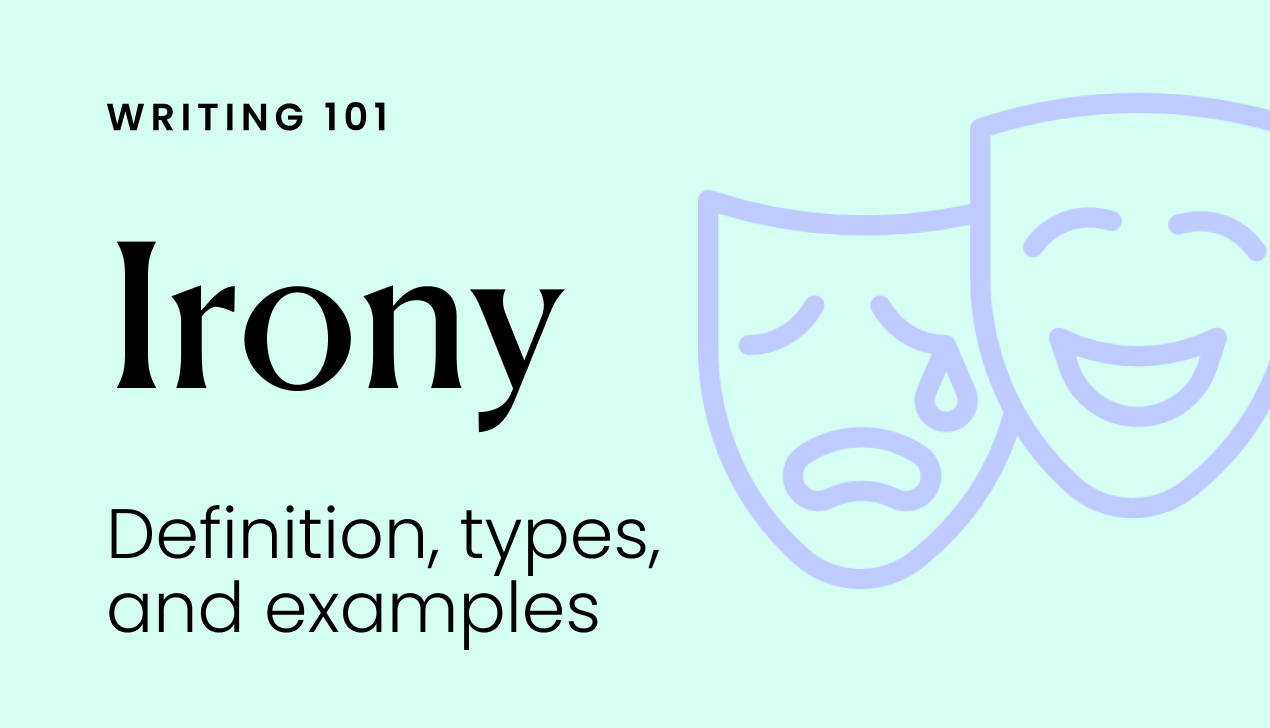
Introduction:
Unlocking the Art of Irony in a Sentence
Irony, a versatile literary device, is the secret sauce that can turn a bland sentence into a captivating masterpiece. When used effectively, irony adds depth, humor, and an unexpected twist to your writing. In this article, we will delve into the art of using irony in a sentence and explore techniques to master this literary gem.

Understanding Irony :
The Essence of Irony
Before we embark on our journey to master irony in sentences, let’s clarify what irony actually is. Irony is a rhetorical device where there’s a gap between appearance and reality. It’s when the intended meaning is opposite to the literal meaning of words, often leading to humor or a thought-provoking twist.
Types of Irony :
Exploring Irony’s Many Facets
Irony takes several forms, and understanding them is key to using this device effectively:
Verbal Irony: This occurs when someone says one thing but means another, often with a touch of sarcasm.
Situational Irony: The outcome of a situation is contrary to what was expected or intended.
Dramatic Irony: The audience knows something that the characters in a story do not, creating suspense and tension.
Mastering the Art :
Adding Irony to Your Sentences
Now that we have a grasp of what irony entails, let’s explore how you can incorporate it into your writing.
Play with Expectations: Irony thrives on defying expectations. Craft sentences where the outcome surprises your readers.
Use Sarcasm Sparingly: Verbal irony often involves sarcasm. Employ it judiciously to maintain a balance between wit and subtlety.
Employ Situational Irony: Create scenarios where the situation takes an unexpected turn, leaving readers amused or contemplative.
Build Dramatic Tension: In narratives, use dramatic irony to create suspense and engage your audience on a deeper level.
Examples of Irony :
Illuminating Irony with Examples
Let’s explore a few examples to illustrate the power of irony in sentences:
He claimed to be a vegetarian as he devoured his steak with gusto.
The fire station burned down just as the firefighters were celebrating their record of no fires in a month.
Conclusion :
Embrace the Irony
Incorporating irony into your writing elevates it from mundane to memorable. It engages your readers, making them ponder, chuckle, or see the world from a different perspective. By mastering the art of irony in a sentence, you can infuse your writing with depth and wit, leaving a lasting impression on your audience.
So, don’t shy away from irony; embrace it and watch your writing come alive with unexpected twists and turns.
Incorporating irony into your writing can be a game-changer, adding a layer of complexity and intrigue that captivates readers. Whether you’re crafting fiction, essays, or even social media posts, mastering irony can make your writing stand out in a crowded digital landscape. So go ahead, experiment with irony in your sentences, and watch your words come to life.


